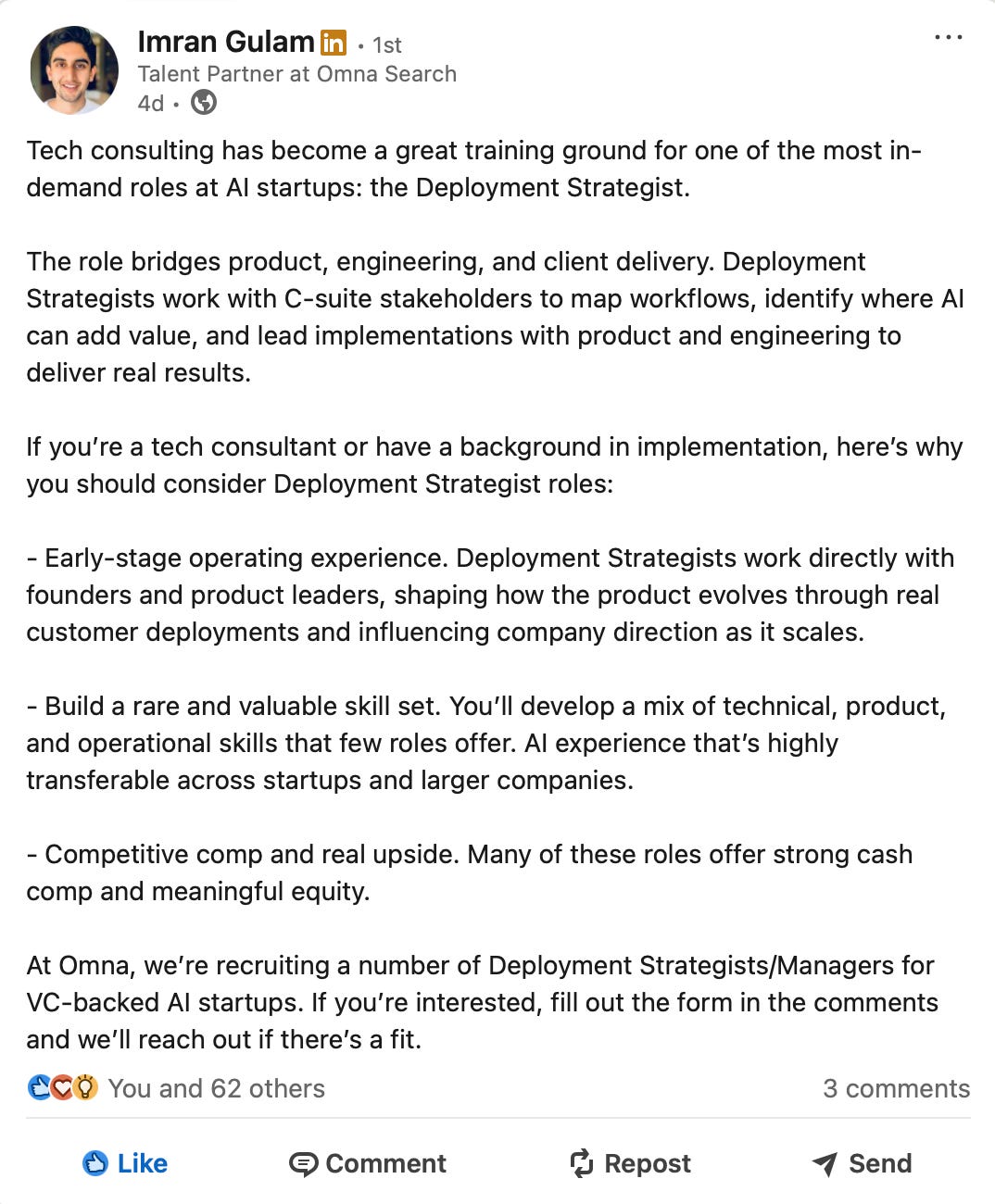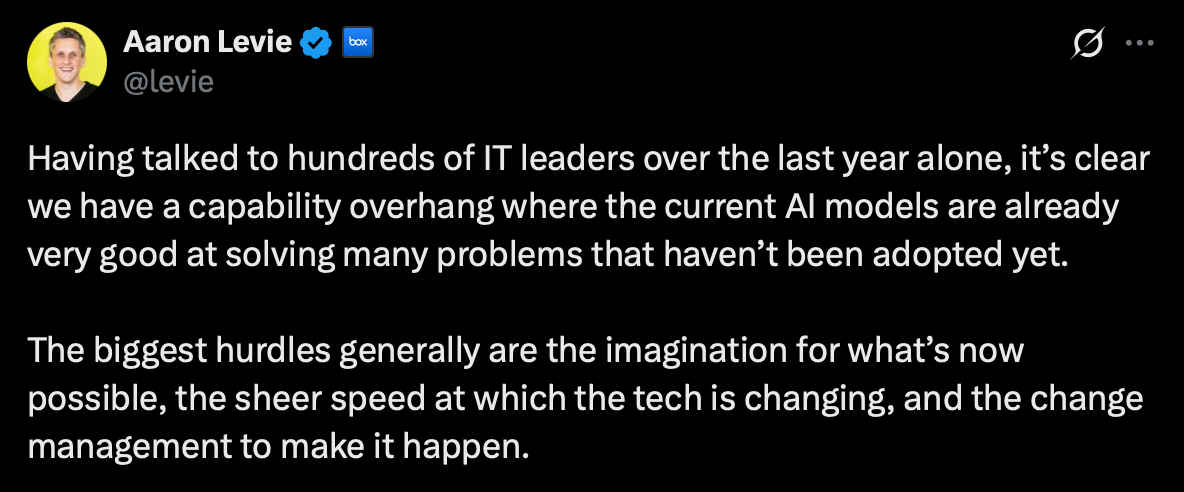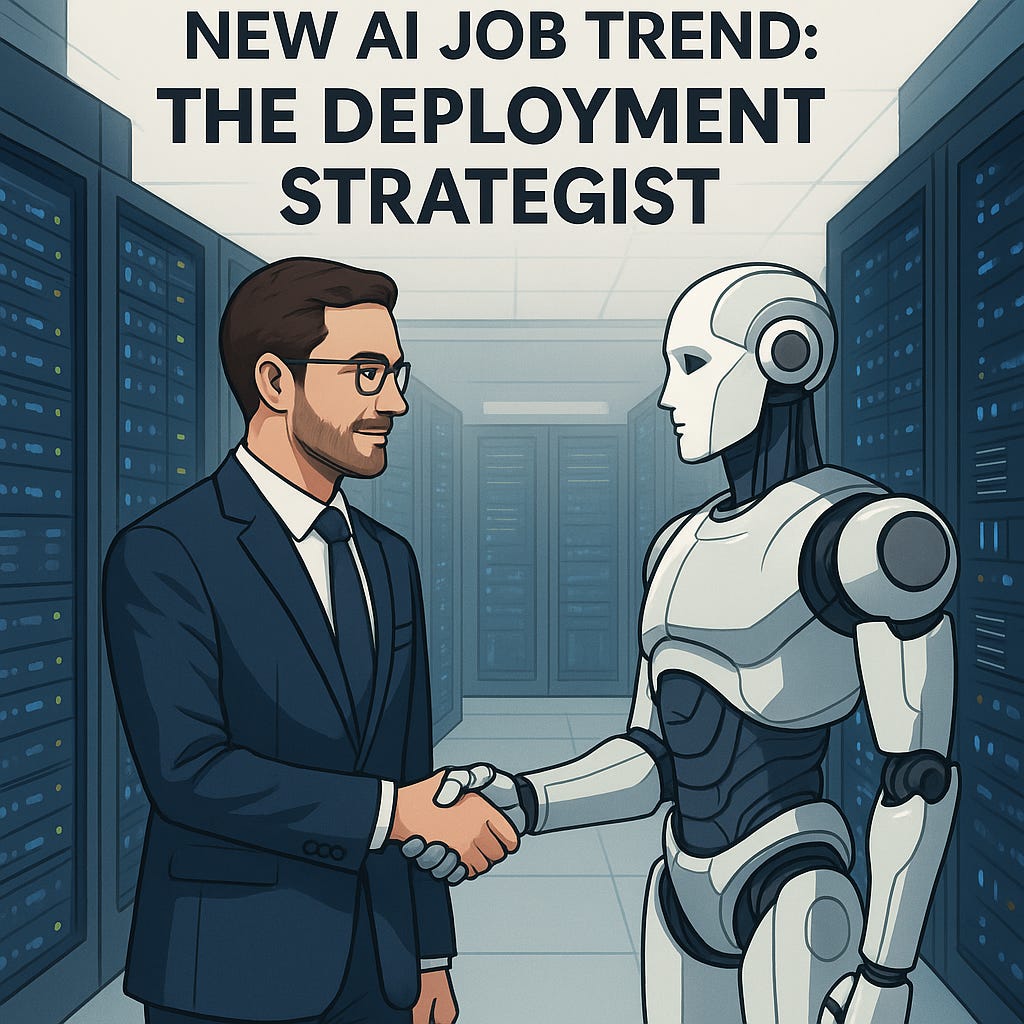The rebirth of tech consulting? Enter the AI Deployment Strategist.
A new role for a classic skillset: Deployment Strategist are turning AI into real business value.
I recently saw a Linkedin post from my friend Imran Gulam, a Talent Partner at Omna Search, about the rise of a fascinating new role: the Deployment Strategist.
Popularized by Palantir, the Deployment Strategist role was designed to bridge the gap between powerful technology and real-world outcomes.
Deployment Strategists work side-by-side with clients to actually implement software that changes how organizations operate, instead of just consulting through PowerPoint. (There’s a great day-in-the-life article about Deployment Strategists at Palantir if you’re curious).
Why now?
As AI products mature, this role is about to have its moment.
Early-stage and next-gen businesses have already embraced AI.
But legacy enterprises and governments? They’re still struggling to turn AI into tangible, value-creating outcomes.
Why? Because legacy orgs are buried under layers of:
🏗️ Legacy systems
🪜 Internal politics
🧨 Project sabotage
🐢 Slow processes
🏛️ Bureaucracy
🐈 Turf wars
📄 Poorly documented processes
…to name just a few roadblocks.
As Aaron Levie wrote in a recent X post:
…later in the post he writes:
The big opportunity right now is building domain specific AI Agents that tap into today’s AI capabilities but bring a high degree of domain understanding, a UX pattern that fits the use-case, and support for actually doing the change management in the enterprise.
Change management.
That’s a consultant’s favourite two-word phrase, and it’s about to matter more than ever.
The Ugly Truth
I’ll go ahead any say it:
Most older organizations are simply too dysfunctional to adopt AI themselves.
They’ll be too slow or too risk-averse to deploy new tools and processes on their own.
If you’ve worked in a large corporation or in government, you know exactly what I mean.
Even when the tech is ready, the organization isn’t.
And adopting AI isn’t just a technical challenge, it’s emotionally charged. Inside teams, people feel:
😨 Fearful: “Will this automate my job?”
🏴☠️ Territorial: “Our team should own this.”
😬 Insecure: “If I document my processes, they won’t need me.”
That’s why Deployment Strategists will become essential. They will be valued not just for their tech fluency, but for their ability to navigate people, politics, and emotion.
They’ll be the human bridge between AI capability and business reality.
🔮 What Happens Next
Expect to see two major trends:
Tech consulting firms (IBM, Accenture, and Deloitte) will double down on AI deployment specialists in specific industry verticals: they’ll bring experts who understand the tech, the domain, and change management expertise to implement.
As Imran’s post suggested, AI labs will invest in their own flavour of consulting arms, dubbed as “AI Deployment Specialists” to help enterprise customers adopt AI. See this AI Deployment Manager job at OpenAI, for example.
What This Means for Product Builders
If you’re trying to break into Product Management or AI product work, this is a massive opportunity. You’ll:
Work directly with customers to translate models into impact.
Build your AI implementation muscle. It’s one of the most valuable skills in the next decade, and you’ll be getting hands-on experience.
If you’re a founder or startup builder, think beyond features. Consider your enterprise customer’s path to deployment:
Option A: Partner with technology consulting firms who know how to navigate complex clients.
Option B: Build your own “deployment team” that helps customers succeed in the wild.
Death (and rebirth) of Consulting?
A few months ago, I thought the consulting industry as a whole was in trouble.
And to be fair, consulting firms that deliver PowerPoint strategies are toast.
But the firms and labs that invest in Deployment Strategists? They’ll be the ones who turn AI talk into AI value.
Deployment Strategists will be critical to the next wave of AI product adoption.





